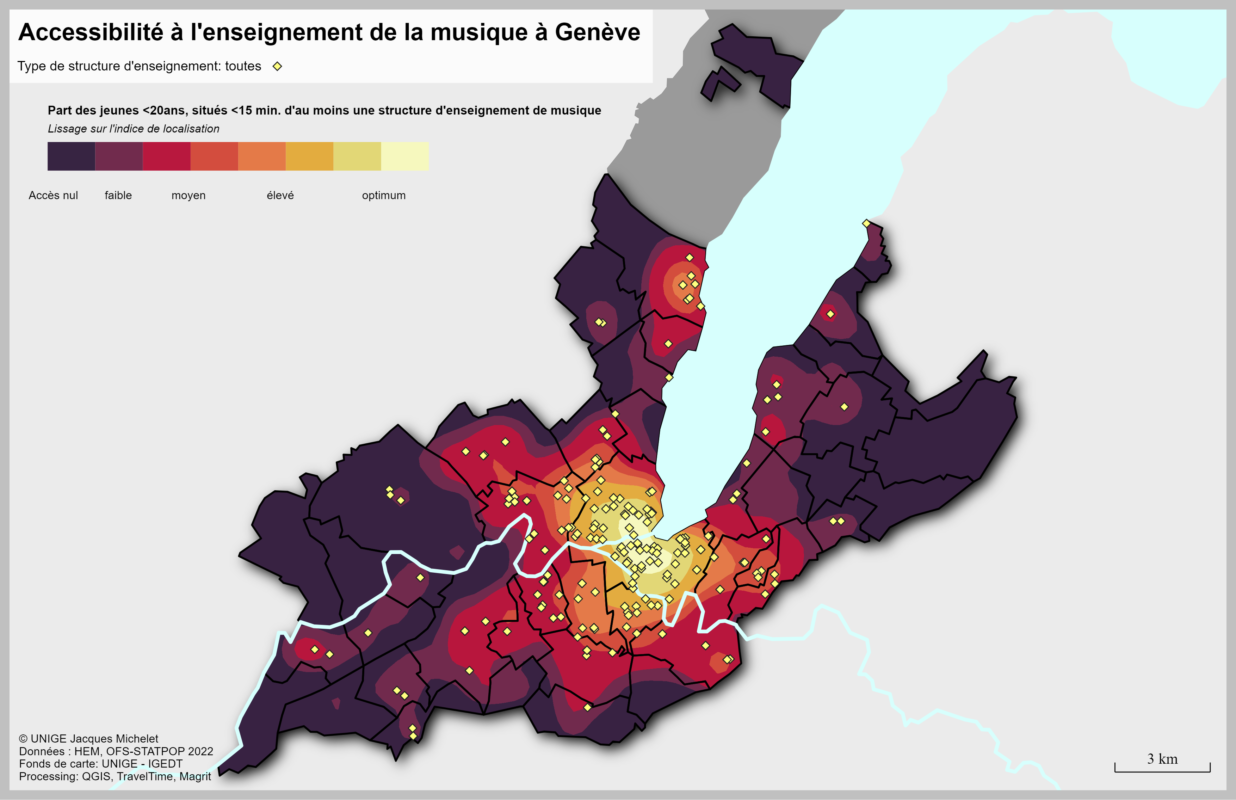Elektronische Musik an Schweizer Musikhochschulen
Overview of the challenges and opportunities for electronic music within the Swiss tertiary music education system.
Switzerland's music academies (HEM) offer training in all aspects of electronic music, from the recording studio to the sound design through to computer-assisted music (CAM), electroacoustic, electronic and new media composition, as well as infrastructures such as immersive 3D sound systems or black box.
Growing importance
Electronic music has recently gained a firm foothold in Switzerland's higher music education institutions. More and more students are enrolling in electronic music training programs, and the HEMs are responding to this growing demand by developing high-quality curricula. Having understood the scope of this evolution and the meteoric rise of digitalization in our societies, while questioning it at the same time, they offer curricula adapted to each level, whether Bachelor, Master or continuing education, and enabling students to delve into all aspects of electronic music, from technique to composition, from production to performance, or from critical reflection to practice. Courses may include subjects such as the use of music creation software, synthesizer programming, the manipulation of multichannel systems, immersion and sound effects, the production and mixing of works, performance with different digital equipment and the creation of multimedia supports. Students are also encouraged to explore electronic music from different angles, and to integrate other artistic disciplines into their work, such as digital art and sound design.
An approach to extending musical and artistic creativity
At the Zürcher Hochschule der Künste (ZHdK), Germán Toro Pérez is in charge of the Institute for Computer Music and Sound Technology, and describes his institution's approach as follows: "Access to electronic music at the ZHdK comes from computer music on the one hand, and electroacoustic and acoustic music on the other, and is therefore open to experimental practices. In recent years, the Live Elektronik has also gained in relevance and importance in research and teaching." At the other end of the country, Gilbert Nouno is head of the Centre de Musique Électroacoustique (CME) and professor of electronic and multimedia composition at Geneva's Haute école de musique: "Today's composer/performer/musician has at his or her disposal a wide range of instruments, from orchestras to new media; these are the means of expression he or she learns to master, such as playing modes and instrumental registers, but also generating images from sound or the reverse, capturing movement to modify a sound or visual perception.Although each of the eight institutions making up the Conference of Swiss Universities of Music integrates this digital dimension into its pedagogical engineering, they all offer different colors and atmospheres to apprehend this flagship development for music in the 21st century.e As a result, the diversity, complementarity and richness of Switzerland's vocational training offer in this field has been strengthened.
The question of artificial intelligence (AI)
The latest striking advances in AI are a major theme for the music of our time, and the ways in which it can be incorporated into training curricula. On this subject, Gilbert Nouno declares: "The recent appearance and online availability of Large Language Models (LLMs, such as ChatGPT, Stable Diffusion...) has suddenly created a general awareness of the power of AI. Nevertheless, AI has been present in musical creation for two or three decades. Examples include electronic orchestration, sound synthesis and gesture control for sound and image generation. The recent democratization of AI tools means that we can now better integrate them into student training, better understand how to use them, glimpse the possibilities for creation and answer the ethical questions they raise. It's an exciting field that's ushering in a new era and will necessarily lead to innovative and original ways of working, creating and thinking." Germán Toro Pérez agrees: "AI is currently the subject of a great deal of research at our institute, and a number of student projects in the field are being launched. So, in my opinion, it's only a matter of time before AI becomes an integral part of our doctrine.
Die Webadressen der Studios für elektronische Musik an Schweizer Musikhochschulen:
conservatorio.ch/it/scuola-universitaria/formazione/master-of-arts/in-music-composition-theory
hesge.ch/hem/lecole/centre-musique-electroaucoustique
hslu.ch/de-ch/musik/studium/master/major-music-and-digital-creation
esbasel.ch (Erstes Studio 1987 in Basel gegründet)








